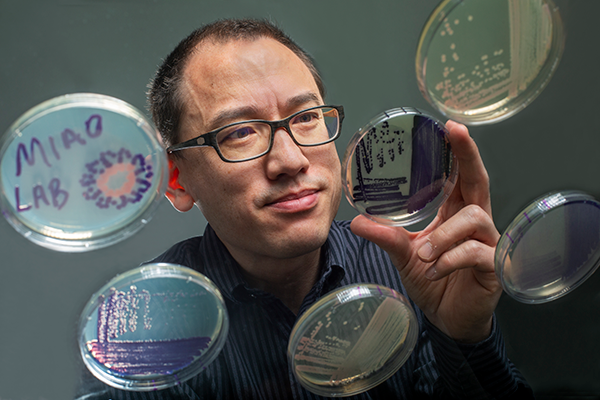
When certain immune cells in our bodies are invaded by a dangerous pathogen, they sacrifice themselves to vanquish the intruders.
Immunologist Ed Miao, MD, PhD, studies pyroptosis — a type of programmed cell death in which a cell, once compromised by an enemy pathogen, literally blows itself up to prevent the pathogen from spreading in the body.
Pyroptosis is just one weapon in the immune system’s perpetual battle against dangerous pathogens. If we can learn enough about each side’s strengths and weaknesses, Miao says, we can use that knowledge to gain a critical advantage.
Once the body detects that a pathogen has compromised cells, Miao said, the immune system must decide how to respond. Infected immune cells kill themselves in various ways: by blowing themselves up (pyroptosis or necroptosis) or dividing themselves into smaller parts (apoptosis). How and why the immune system programs one flavor of death over another is one of the big mysteries remaining in the cell death field, said Miao.
Miao joined Duke’s Department of Immunology in April 2020. Here, he hopes to continue to expand the repertoire of pathogens that he studies, in order to help the immune system learn how to shut them down. The COVID-19 pandemic, he said, “reminds us that infectious diseases have killed more people than any other cause in the history of the world.”
“My goal is to understand the basics, to paint a full landscape of knowledge, that someday could inspire new treatments,” said Miao. “That probably will be done by someone else decades down the road. What draws me to this area of science is that it’s a very rich and complex field of study where we have so much still to learn.”
More About Duke Science and Technology Research:
Support Duke Science and Technology
To support research and learn more about Duke Science and Technology, visit dst.duke.edu or email scienceandtechnology@duke.edu.
Story originally published in DukeMed Alumni News, Winter 2021